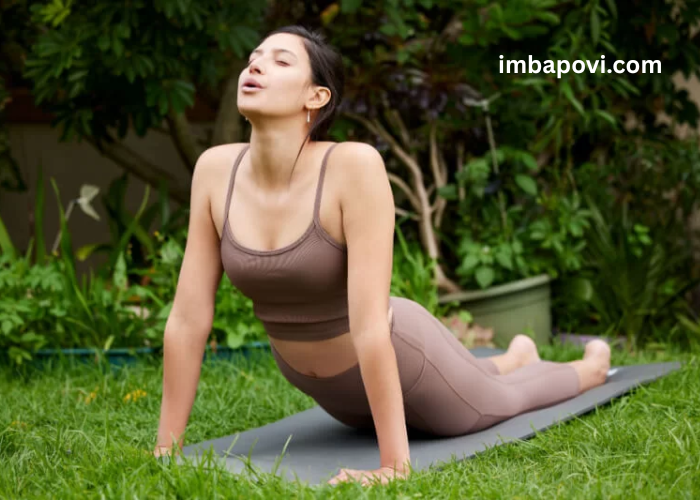In the fast-paced world we live in today, finding peace of mind and maintaining mental and physical health can seem like an insurmountable task. The constant bombardment of information, stress from work, family obligations, and the never-ending demands of modern life can lead to burnout, anxiety, and a general sense of disconnection. However, one powerful way to regain control over your well-being is through adopting mindful lifestyle practices. These practices, deeply rooted in ancient wisdom, have gained significant attention in recent years for their ability to improve mental health, enhance emotional regulation, and promote overall well-being.
In this article, we will explore various mindful lifestyle practices that can help individuals lead more balanced, fulfilling lives. By incorporating mindfulness into daily routines, one can reduce stress, foster inner peace, and cultivate a deeper connection with themselves and their surroundings.
What is Mindfulness?
Mindfulness refers to the practice of being fully present in the moment, without judgment. It involves paying attention to your thoughts, feelings, and physical sensations as they occur, without trying to change them or become overly involved in them. The goal of mindfulness is not to escape from life’s challenges but to approach them with greater awareness and acceptance. This awareness helps individuals to detach from automatic reactions and respond thoughtfully to situations, leading to reduced stress and improved emotional well-being.
The Origins of Mindfulness
Mindfulness practices are rooted in Buddhism but have been embraced by people of all cultures around the world. Over the years, mindfulness has transcended its spiritual origins and has been integrated into secular therapeutic approaches. Programs like Mindfulness-Based Stress Reduction (MBSR) have proven highly effective in treating various mental health issues such as anxiety, depression, and chronic pain. Today, mindfulness is not just seen as a spiritual tool but a practical and science-backed way to improve well-being.
The Importance of Mindfulness in Daily Life
Incorporating mindfulness into your lifestyle can bring numerous benefits, both mentally and physically. A mindful approach to life allows individuals to become more self-aware, promoting better decision-making and healthier habits. Below, we explore some of the key advantages of living a mindful life.
Stress Reduction
One of the most significant benefits of mindfulness is its ability to reduce stress. By practicing mindfulness, individuals learn to observe their thoughts and emotions without becoming overwhelmed by them. This creates a mental space between stimulus and reaction, allowing for more thoughtful and controlled responses to stressful situations.
Emotional Regulation
Mindfulness also helps individuals regulate their emotions more effectively. Through mindfulness, one becomes more attuned to their emotional states and learns to respond to them in a balanced and calm manner. Over time, this practice can result in increased emotional resilience, helping individuals navigate difficult emotions such as anger, sadness, or frustration.
Improved Focus and Concentration
Mindfulness enhances cognitive function, particularly in the areas of attention and concentration. By training the mind to focus on the present moment, mindfulness encourages individuals to avoid distractions and remain attentive to tasks at hand. This heightened concentration can improve productivity and overall cognitive performance.
Enhanced Physical Health
Scientific research has shown that mindfulness can have a positive impact on physical health. Regular mindfulness practice has been linked to lower blood pressure, improved immune function, and reduced symptoms of chronic pain. By reducing stress and promoting relaxation, mindfulness supports the body’s natural healing processes, leading to a healthier lifestyle.
Mindful Practices for Improved Well-Being
There are various ways to integrate mindfulness into daily life. Below, we will explore some of the most effective mindful practices that promote improved well-being.
Mindful Meditation
Mindful meditation is perhaps the most well-known mindfulness practice. It involves sitting quietly and focusing on the breath, body sensations, or a particular object of attention. The aim is to bring the mind back to the present moment whenever it wanders, gently guiding it back to the focus point without judgment.
How to Practice Mindful Meditation
- Find a Quiet Space: Sit in a comfortable position with your back straight and your hands resting on your lap.
- Focus on Your Breath: Close your eyes and bring your attention to your breath. Notice the sensation of air entering and leaving your nostrils or the rise and fall of your chest or abdomen.
- Be Present: If your mind wanders, simply acknowledge the thought and return to your breath. Practice patience and self-compassion throughout the process.
- Practice Regularly: Start with just five to ten minutes a day and gradually increase the duration as you feel more comfortable.
Mindful meditation can help reduce stress, improve sleep, and enhance emotional balance. It provides a powerful tool for cultivating peace of mind in an often chaotic world.
Mindful Eating
Mindful eating involves paying full attention to the experience of eating, from the textures and flavors of the food to the sensations of hunger and fullness. By slowing down and being present while eating, individuals can cultivate a healthier relationship with food and prevent overeating.
How to Practice Mindful Eating
- Eat Without Distractions: Turn off the television, put down your phone, and focus on the meal in front of you.
- Savor Every Bite: Take small bites and chew slowly, savoring the taste and texture of the food.
- Listen to Your Body: Tune in to your hunger and fullness cues, and eat until you are satisfied—not overly full.
- Practice Gratitude: Reflect on the effort that went into preparing the meal, and express gratitude for the nourishment it provides.
Mindful eating encourages healthier food choices, improves digestion, and helps to develop a deeper appreciation for the nourishment that food provides.
Mindful Movement
Incorporating mindful movement into your daily routine can improve physical health and mental well-being. Practices like yoga, tai chi, or even mindful walking focus on the connection between body and mind. These practices help release tension, increase flexibility, and promote a sense of calm.
How to Practice Mindful Movement
- Focus on the Breath: Whether practicing yoga or walking, always bring your attention to your breath. Syncing breath with movement is key to enhancing mindfulness.
- Move with Awareness: Be conscious of each movement, whether it’s a stretch in yoga or a step during a walk.
- Notice Sensations: Pay attention to the physical sensations in your body as you move—how your muscles stretch, contract, or relax.
- Stay Present: Let go of any distractions and be fully present in the movement, noticing how your body feels at every moment.
Mindful movement fosters greater body awareness, reduces physical tension, and supports emotional health.
Gratitude Practice
Gratitude is a powerful tool for improving well-being. When practiced mindfully, gratitude helps shift the focus from what’s lacking in life to what is already abundant. Keeping a gratitude journal, where you list things you are grateful for each day, can create a positive mindset and improve emotional well-being.
How to Practice Gratitude
- Reflect Daily: At the end of each day, take a moment to reflect on what you are grateful for.
- Be Specific: Instead of general statements like “I am thankful for my family,” try to be specific, such as “I am grateful for the support my partner gave me today.”
- Express Gratitude to Others: Tell people in your life that you appreciate them, either through words or actions.
- Write It Down: Keep a gratitude journal to record your reflections. Writing down your thoughts solidifies the practice.
Regular gratitude practice has been shown to boost mood, improve relationships, and increase overall life satisfaction.
Digital Detox
The constant presence of technology in our lives can contribute to feelings of overwhelm and stress. Taking breaks from screens and engaging in a digital detox allows individuals to reconnect with themselves and the world around them.
How to Practice a Digital Detox
- Set Boundaries: Set specific times when you will disconnect from your devices, such as during meals or an hour before bedtime.
- Engage in Offline Activities: Spend time outdoors, read a book, or practice a creative hobby.
- Limit Social Media Use: Allocate a set amount of time each day for social media, and avoid excessive scrolling.
- Practice Mindfulness in Nature: Take walks in nature and be fully present, noticing the sounds, sights, and smells around you.
A digital detox helps reduce stress, improves sleep, and fosters a deeper connection with the present moment.
Sleep Hygiene and Mindfulness
Good quality sleep is crucial for physical and mental health. Practicing mindfulness before bed can help calm the mind and improve sleep quality. Simple practices such as deep breathing, progressive muscle relaxation, or guided meditation can help prepare the body and mind for rest.
How to Improve Sleep with Mindfulness
- Create a Relaxing Environment: Dim the lights, avoid electronic devices, and make sure your bedroom is conducive to rest.
- Practice Deep Breathing: Focus on slow, deep breaths to calm the nervous system.
- Use Guided Meditation: Listen to calming music or a guided meditation designed to help you relax and fall asleep.
- Establish a Sleep Routine: Go to bed and wake up at the same time each day to regulate your body’s natural sleep cycle.
By integrating mindfulness into your nighttime routine, you can improve the quality of your sleep and wake up feeling more refreshed.
Conclusion
Adopting mindful lifestyle practices can lead to significant improvements in overall well-being. Whether through mindful meditation, mindful eating, or simply taking time for mindful movement, these practices foster mental clarity, emotional regulation, and physical health. By incorporating mindfulness into daily routines, individuals can develop a greater sense of peace, resilience, and happiness, ultimately leading to a more fulfilling life.
Incorporating mindfulness into your life does not require drastic changes; even small shifts in your daily habits can have profound effects on your mental and physical health. Start small, stay consistent, and gradually build a mindful lifestyle that works for you. The benefits are clear—mindfulness can transform your life in ways that promote long-term well-being and happiness.





